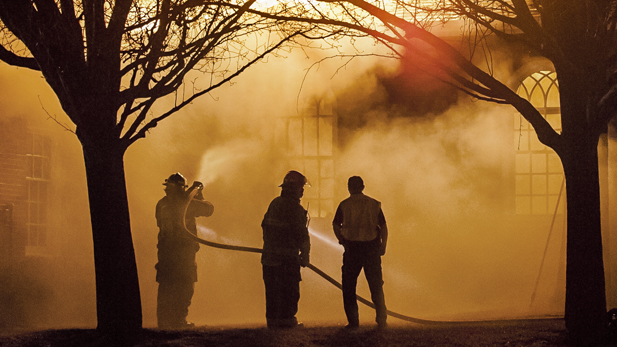 Fire Fighters fail to save 1st Church of Christ Scientist, Tyler TX
Fire Fighters fail to save 1st Church of Christ Scientist, Tyler TX
A new study shows firefighters are at a higher risk of specific cancers than the general population.
Firefighting is a dangerous job, but research in the past has found it also correlates with a higher risk of cancer. The study by the National Institute for Occupational Safety and Health (NIOSH) used data from the California cancer registry, the largest cancer registry in the U.S.
Rebecca Tsai, an epidemiologist with NIOSH, is one of the study’s authors. She said firefighters are more likely to develop "melanoma, non-Hodgkin lymphoma, multiple myeloma, and cancers of the tongue, esophagus, testes, and brain.”
She said the data also shows that Black and Latino firefighters have an even higher risk of these cancers than their white counterparts.
Jeff Calvert, a physician and another author of the study, said racial bias in the workplace could be one of the reasons firefighters of minority descent develop cancer at higher rates.
“It’s possible that some of these minority firefighters were assigned to busier firehouses and so responded to more fire runs and fought more fires,” he said.
Fighting more fires means more exposure to carcinogens, Calvert said.
Tucson Fire Department Captain John Gulotta is concerned about the risk of cancer for firefighters in Arizona.
He's working to secure a grant from NIOSH to study the health of Tucson firefighters in the weeks and months after being near a fire. Gulotta said that more safety measures need to be in place to protect firefighters from exposure to the many carcinogens released in a structural fire. He said he hopes to begin gathering data for the study later this year.

By submitting your comments, you hereby give AZPM the right to post your comments and potentially use them in any other form of media operated by this institution.